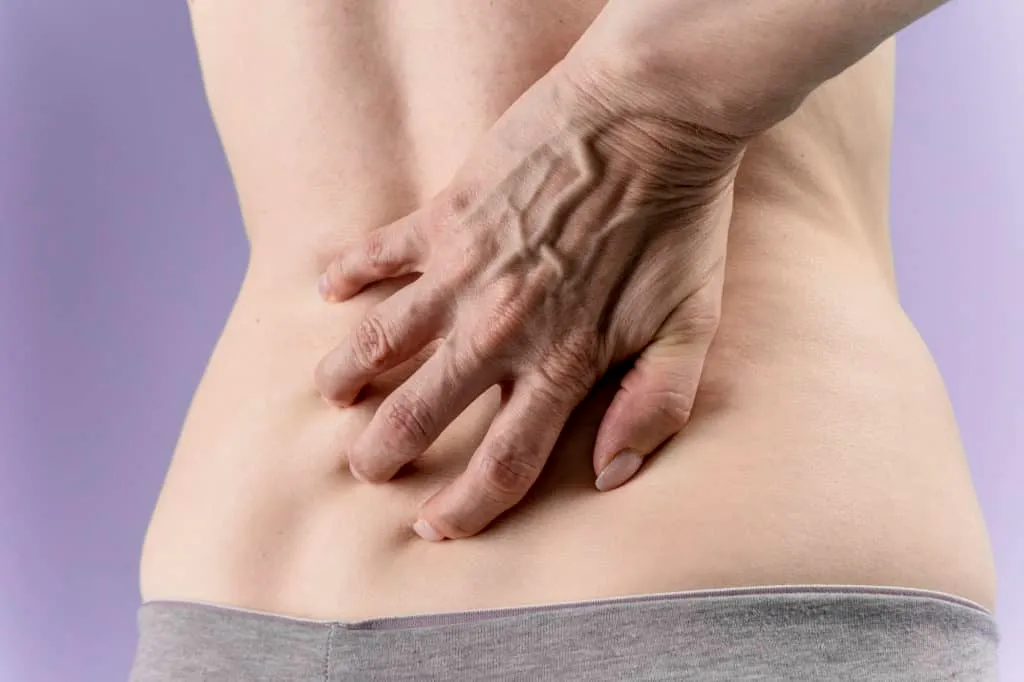Are you worried that you’re going to be in pain forever?
We describe chronic pain as any pain that remains for more than a couple of months (or years in some cases).
Chronic pain can happen anywhere in your body, negatively affects your quality of life, and can become a significant cause of anxiety and depression.
Therefore, finding the root cause, as we do at Universus Physical Therapy, is essential.
More Blogs From Universus:
What Exactly Is Myofascial Release?
Should I Consider Paying Out Of Pocket For Physical Therapy?
Maintaining Strength As You Get Older
What Is Chronic Pain?
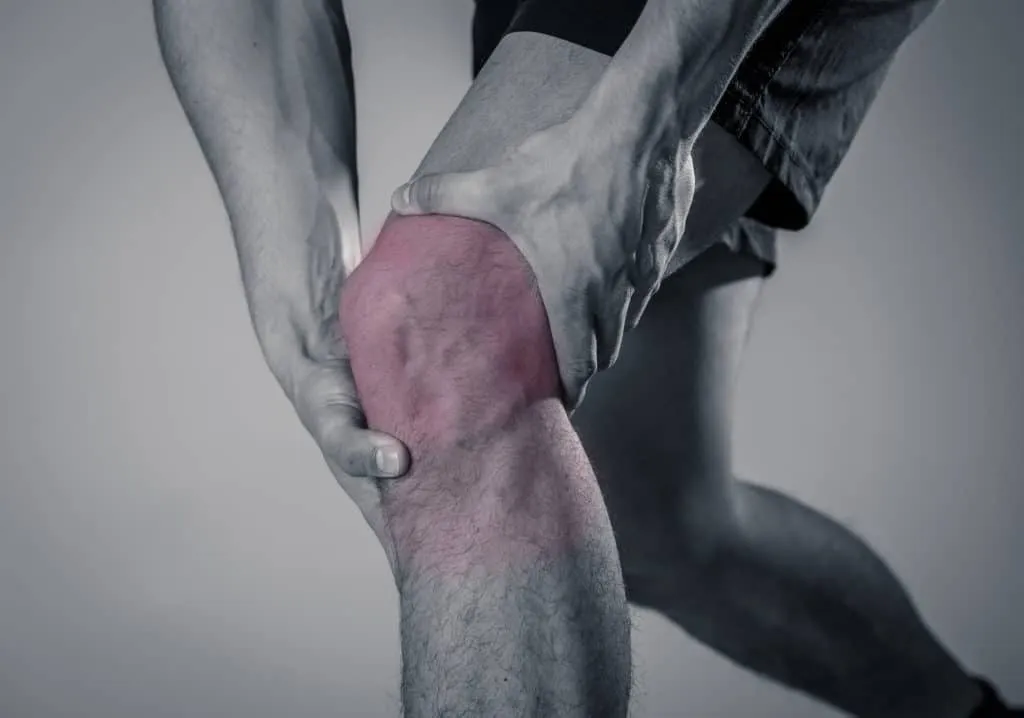
The official definition of chronic pain is pain that remains for three months or more. It can be constant or intermittent pain in any part of the body.
When you have chronic pain, it affects your daily routine. It can have a devastating impact on your personal and professional life.
It forces you to reduce your activity levels and become almost entirely sedentary. It can prevent you from working and cause substantial financial stress.
In severe cases, it can also lead to depression, anxiety, and insomnia – which can all worsen the pain and/or your perception of it.
What Is The Difference Between Chronic Pain and Other Types Of Pain?
When we compare chronic pain to acute pain, they differ considerably.
For example, when you sustain an injury or break a bone, you experience acute pain.
However, although usually more intense, acute pain is not long-lasting and dissipates once the injury is healed.
On the other hand, in cases of chronic pain persists long after recovering from the illness or injury – or it sometimes occurs spontaneously for no apparent reason.
Examples Of Chronic Pain
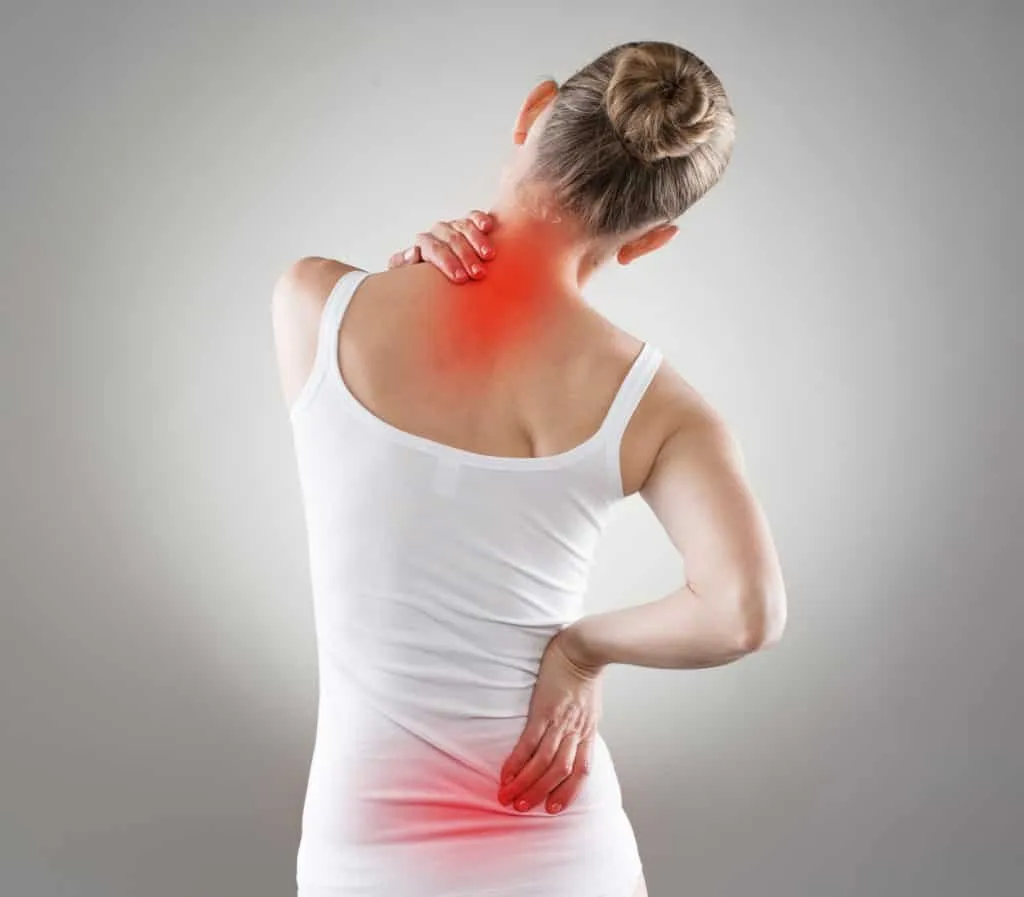
Chronic pain is quite common and one of the primary reasons people seek medical attention, with around 25% of adults in the USA experiencing some type of chronic pain.
We consider any pain remaining longer than 12 weeks to be chronic.
Still, some of the most common manifestations of chronic are:
What Causes Chronic Pain?
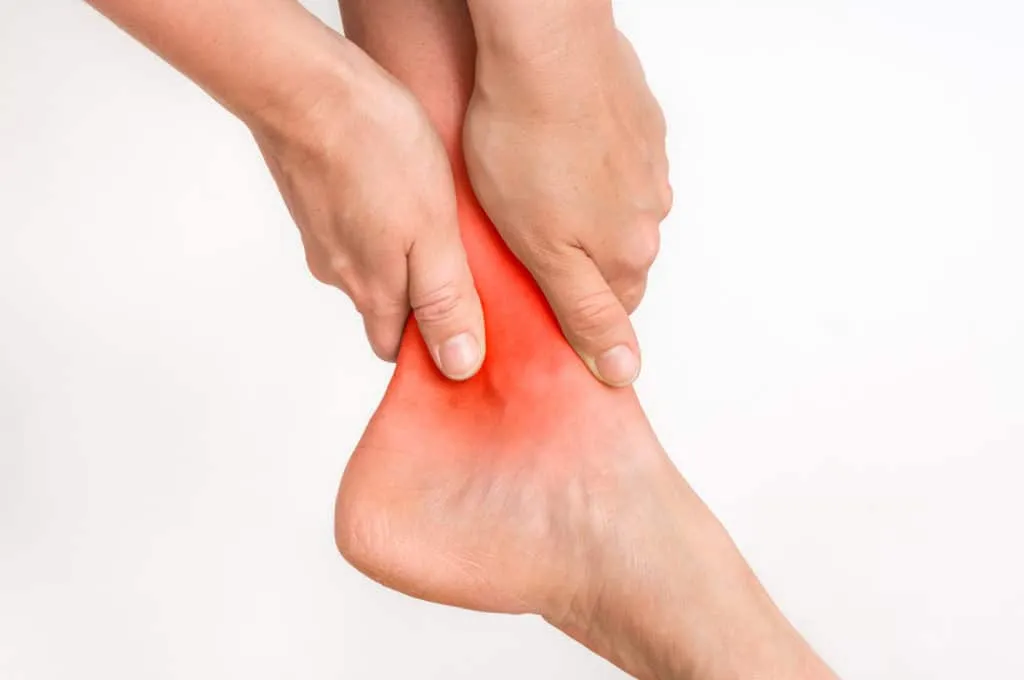
In some cases, chronic pain is due to an underlying medical condition like cancer or arthritis that causes constant pain.
Some diseases and injuries can also cause changes in the body that increase pain sensitivity. A typical time for chronic pain to appear is after recovering from an illness or injury.
Medical conditions like an infection, fractured bones or sprains can become causes of chronic pain too. But some people experience chronic pain that doesn’t track back to an illness or injury, and it appears for no apparent reason.
Other factors like depression, anxiety, and chronic stress can also cause chronic pain, which doctors describe as “psychosomatic” or “psychogenic” pain. These terms are often roughly translated as “all in your head.”
But there is nothing imaginary about feeling chronic daily pain, and you can’t just think your way out of it – regardless of the cause. Research is ongoing into the link between mental health conditions and chronic pain.
Still, some doctors believe it could be brought on by decreasing endorphins – the feel-good hormones and the body’s natural painkillers – in the system.
In most cases, however, there is usually a combination of factors involved in developing chronic pain.
What Are The Symptoms Of Chronic Pain?
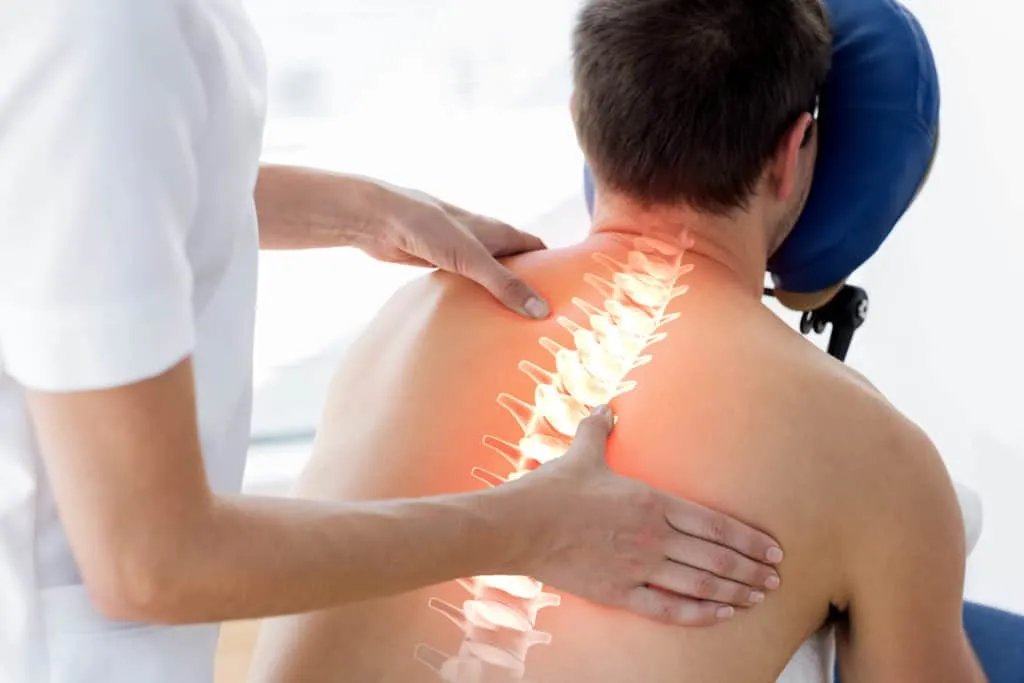
The symptoms of chronic pain differ widely from patient to patient. But some of the most common symptoms that people with chronic pain experience include:
Chronic pain can cause other conditions and symptoms, like:
The Key To Fixing Chronic Pain Is Finding The Root Cause

We call any pain that comes and goes for three months or more chronic pain. But we must find the underlying root cause before we can fix chronic pain.
Determining the exact cause can be challenging as this kind of pain differs from one person to another, and the pain can radiate and refer from other areas of the body.
So to help find the root cause, we need to know:
After taking your full medical history, we complete a physical evaluation to determine the underlying cause of your pain.
In some cases, we may also recommend the following tests to rule out an underlying medication condition:
How Can I Get Relief From Chronic Pain?
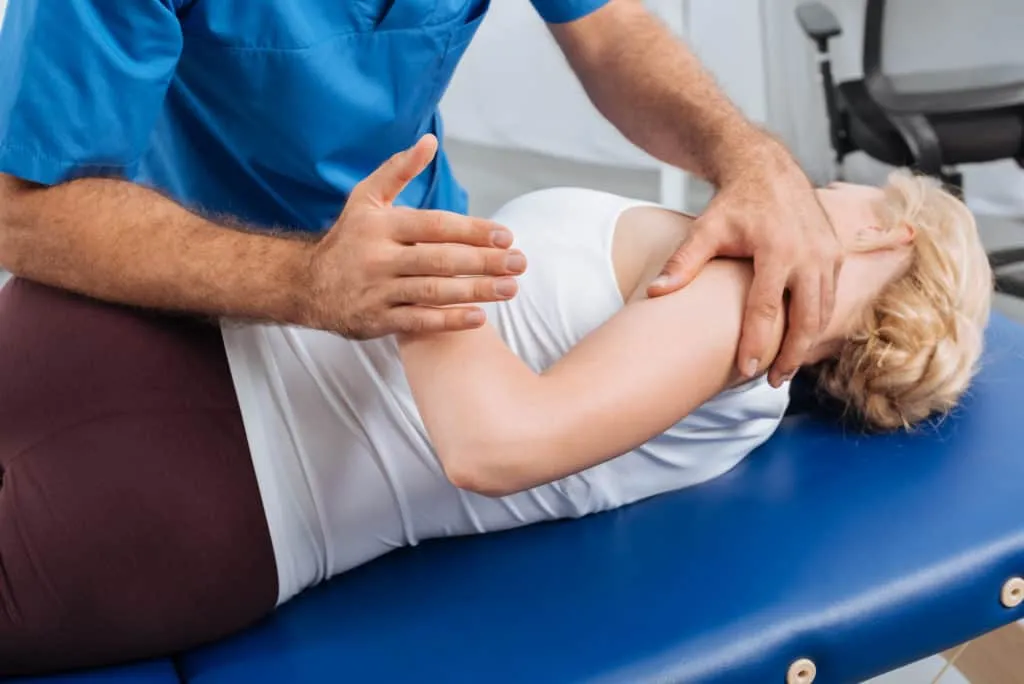
When you go to the doctor with chronic pain, they will try to find your pain’s source.
Still, often they’re unable to find anything and resort to offering you stronger and stronger medication for pain management – from NSAIDs (Nonsteroidal anti-inflammatory drugs) and muscle relaxants or corticosteroid injections to opioids.
For those with nerve-related chronic pain – they may give you anticonvulsants to prevent seizures. Nerve blocks using an anesthetic at the site of pain to desensitize the area. They may offer you anti-depressants, sedatives, and/or sleeping tablets. But none of these things is a long-term solution.
In fact, they can have profoundly adverse effects on your health. They only mask the pain and create a whole new set of problems.
You’ve probably tried numerous remedies to treat the pain at home, too, such as topical ointments and gels, CBD oil, and heat packs, but nothing works.
So, what can you do to treat chronic pain and find relief?
Some patients find CBT (cognitive-behavioral therapy) and/or counseling helpful in managing chronic pain.
But although these therapies can sometimes offer marginal reductions in pain levels – if there is a psychosomatic/psychogenic element of co-occurring anxiety and depression. They can’t find and fix the issue inside your body.
The most effective way to treat chronic pain is with physical therapy.
Physical therapy includes movements and exercises that help strengthen and stretch muscles, connective tissue, and tendons and aid in pain management.
But most importantly, physical therapy enables you to identify the root cause, so we can fix it for good and prevent it from reoccurring.
At Universus Physical Therapy, we empower you to break free from fear and dependence and thrive in everything you do.
Would you like to talk to one of our physical therapists about your chronic pain?
We offer all new patients a free 30-minute Discovery Visit with no obligation to book treatment afterward. You can reserve yours here.
How To Get Immediate Relief From Chronic Pain
These things are unlikely to fix your chronic pain altogether. For that, you need to see a physical therapist.
However, you can try the following to reduce your pain levels and improve your quality of life:
Movement
Although it feels counterintuitive when you’re in pain, light exercise and movement can help get blood and oxygen flowing around the body and lower inflammation. Both of which reduce the intensity of chronic pain. Exercise also contributes to reducing stress and tension and increasing the endorphins – the body’s natural painkillers.

Reduce stress
This tip is especially relevant if you suffer from chronic pain in your neck and shoulders that is often caused by chronic stress and tension. Still, it can also be helpful for many other types of chronic pain. Try to reduce your stress levels as much as possible. Who or what can you start saying no to? How can you make your life easier and less stressful? You could also consider taking up meditation, yoga, or deep breathing.
Sleep
Getting good quality sleep is probably the most important thing you can do to improve chronic pain symptoms. If you don’t get enough sleep regularly, that alone is enough to cause chronic pain. Consider introducing a sleep routine that you start at the same time every night to help you fall asleep faster.

Hydration
Drinking water and staying hydrated throughout the day can profoundly affect muscle stiffness and chronic pain levels. So try it and see how you feel.
Contact Us We Can Help You

Physical therapy can be one of the best solutions to finally finding pain relief to your chronic pain.
Here at Universus PT & Wellness we have a team of highly trained physical therapists waiting to help you.
We believe that the high level of care we provide to our patients is the difference maker.
If you are interested in finding out more about our services and how we can help you give us a call today.
We can help and get to the bottom of your chronic pain.
We look forward to seeing you visit our clinic soon!


